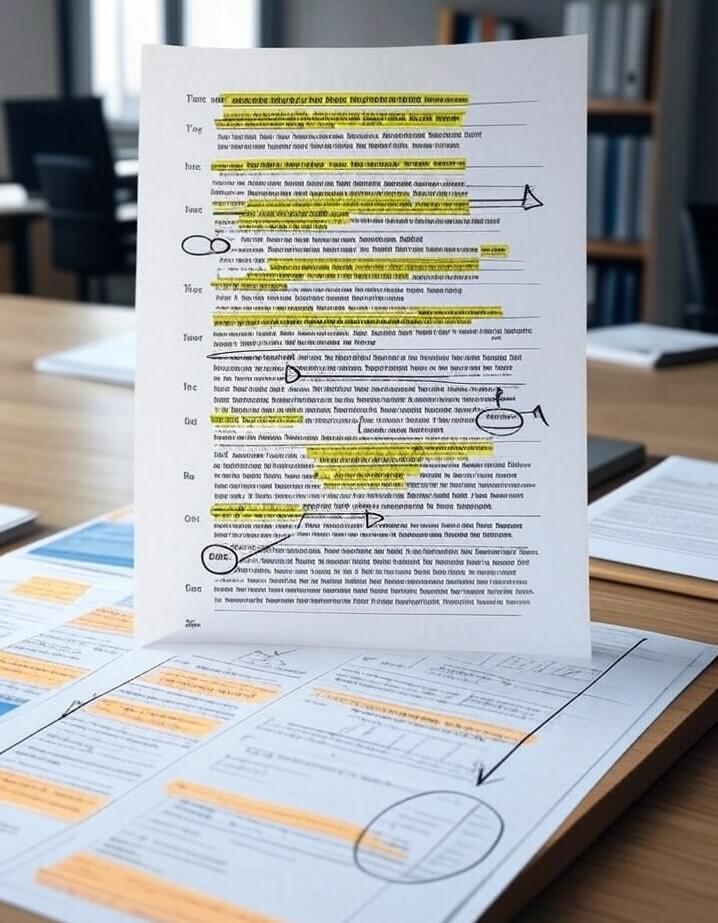How to Remove a Lien from a Property: Step-by-Step Guide for Homeowners and Buyers

What Is a Lien and How Does It Affect Property Ownership
A property lien is a legal claim or right against a property by a creditor. It serves as security for a debt or obligation that the property owner owes. If the debt is not paid, the lien allows the creditor to take legal action to recover the owed amount, which can include forcing the sale of the property.
What are common types of liens:
- Tax liens (unpaid property taxes)
- HOA liens (unpaid HOA dues)
- Mechanic’s liens (unpaid contractor work)
- Federal Tax Liens (unpaid federal taxes)
- State Tax Liens (unpaid state income tax)
- Judgment liens (from court rulings)
How are liens classified?
Liens are classified as voluntary versus involuntary. A mortgage lien is voluntary (you agree to it when you take out a loan), while a tax or judgment lien is involuntary (imposed by law or court).
How can liens block a sale or refinance?
Liens can block sales or refinancing because they create a legal claim on the property that must be resolved before ownership can transfer or new financing can be secured. Here’s why:
- Buyers want clear title
- A lien means the property has outstanding debts, so buyers typically won’t proceed unless the lien is cleared.
- Title companies check for liens during a title search and will not insure the title until all liens are removed.
- Lenders require lien-free collateral
- In refinancing, the property serves as collateral. If another lien exists, the new lender’s claim isn’t first in line, increasing their risk.
- Lenders usually require a first-position lien, so any existing liens must be paid off or subordinated.
- Legal obligation to satisfy debts
- The current owner is legally obligated to pay the lien before selling or refinancing.
- The sale proceeds often go toward satisfying the lien before the seller receives any profit.

How to Check if There’s a Lien on Your Property
To check if there’s a lien on your property, you can follow these steps:
- Check with the County Recorder or Assessor’s Office
Most liens are public records filed with your local county recorder, clerk, or assessor’s office. You can search by your name or property address. Many counties offer online databases for free; others may require an in-person visit or a fee.
- Order a Title Search
Hire a title company like ProTitleUSA, or consult a real estate attorney to perform a full title search. This is more comprehensive and will show all recorded liens, including hidden or less obvious ones.
- Check with Your Mortgage Lender
Your lender may have records of mortgage liens or any secondary loans against the property.
- Look for IRS or State Tax Liens
For federal tax liens, you can request records from the IRS. State and local tax agencies also record liens, typically at the county level.
- Contact Applicable Municipalities and Agencies
Contact the entities to whom you pay property taxes to ensure that there are no outstanding taxes that could result in a tax lien.
- Contact the HOA (if applicable)
If your property is subject to an HOA, verify there are no violations or unpaid dues.
- Use Paid Online Services
Some real estate or legal websites offer paid lien search tools, though results can vary in accuracy and detail.
What are warning signs sellers should watch out for before listing a property?
Unpaid Taxes or Bills
- Property tax or utility bill delinquencies may result in liens.
Previous Contractor Disputes
- If you had work done and didn’t get lien waivers, a mechanic’s lien could pop up.
Multiple Mortgages or HELOCs
- Second mortgages or home equity lines may complicate closing.
Unresolved Legal Judgments
- Court rulings from lawsuits can place judgment liens on your property.
Title Issues from Past Ownership
- If you inherited or bought from someone else, prior issues may still be unresolved.
HOA Disputes
- Unpaid homeowner association dues can trigger liens.
What are warning signs buyers should watch out for before purchasing a property?
Real Estate Title Problems
- A title search reveals title defects, outstanding liens or unclear ownership.
Seller Hesitation on Disclosure
- If the seller is vague or avoids questions about taxes, renovations, or ownership, dig deeper.
Suspiciously Low Price
- A deal that seems “too good” could come with baggage like legal issues or liens.
No Recent Title Insurance
- Properties without recent title policies may have undiscovered encumbrances.
Unpermitted Work
- Renovations without permits may result in fines or forced corrections — and potential liens.
Pending Lawsuits
- If the property is part of an estate or divorce settlement, a legal dispute could delay or block the sale.

Can You Sell a Property with a Lien on It?
Yes, you can sell a property with a lien on it, but there are important risks and limitations for both the seller and the buyer.
How It’s Possible:
- The lien doesn’t prohibit the sale, but it must be resolved — usually paid off — before or during closing.
- Proceeds from the sale are often used to pay the lienholder directly.
Risks and Limitations for the Seller:
- Reduced Proceeds: Lien amounts are paid before you receive any money, reducing or even eliminating your profit.
- Sale Delays: The title company or buyer’s lender may pause or cancel closing until the lien is resolved.
- Limited Buyer Interest: Buyers may walk away if they see unresolved liens or complications.
- Legal Liability: Selling without disclosing a lien can lead to legal consequences if the buyer is misled.
Risks and Limitations for the Buyer:
- Clouded Title: If the lien isn’t discovered or removed, the buyer could inherit the debt.
- Financing Issues: Lenders typically require a clean title, so unresolved liens can block mortgage approval.
- Foreclosure Risk: Certain liens allow lienholders to foreclose if unpaid — even after purchase.
How to Handle:
- Get a title search before listing or making an offer.
- Negotiate lien payoff as part of the sale agreement.
- Use a real estate attorney or title company to manage payoff and release documents.
- Disclose everything — sellers are legally obligated to report known liens.

Disclosure Requirements
When selling a property, disclosing known issues — including liens — is a legal obligation in most U.S. states.
Failing to do so can lead to legal action, delays, or canceled sales.
What must be disclosed?
- Known Liens: Mortgage liens, tax liens, mechanic’s liens, or judgment liens must be disclosed if they affect the title.
- Title Issues: Any cloud on title — such as disputes over ownership or easements — should be revealed.
- Outstanding Assessments or HOA Dues: Unpaid dues or pending special assessments can create liens and must be shared.
- Unpermitted Work: Renovations done without proper permits or approvals often must be disclosed.
- Legal Disputes: If the property is part of a divorce, probate, or other legal proceeding, this must be made clear.
- Material Defects: Structural issues, pest infestations, water damage, etc., even if not lien-related, must be disclosed honestly.
Disclosure Process:
- Disclosure Forms: Most states require a standardized seller disclosure form
- Written Format: Disclosures should be in writing, signed by the seller, and often reviewed before closing.
- Timing: Disclosures typically must be made before or during contract negotiations, never after signing.

Step-by-Step Guide to Removing a Lien
Step 1: Identify the Lien
Get a title search from a title company or check with your county recorder’s office to confirm:
- The type of lien (tax, judgment, mechanic’s, mortgage, etc.)
- The lienholder’s name and contact information
- The amount owed and any associated case number
Step 2: Contact the Lienholder
- Reach out to the creditor for lien removal (e.g., IRS, contractor, court, lender) and request a payoff statement.
- Ask what’s required to satisfy or release the lien (payment, settlement, proof of error, lien release form, etc.).
Step 3: Resolve the Underlying Issue
Depending on the type of lien, resolution options include:
- Pay the Debt in Full: Once paid, request a Lien Release or Satisfaction of Judgment.
- Negotiate a Settlement: Some creditors (especially private ones) may accept less than full payment to release the lien. They may also file a Partial Release or a Property Lien Release where the property is released from the lien and the debt is just against the debtor.
- Prove the Lien is Invalid: If it’s an error, file documentation (e.g., receipts, court orders) to dispute and remove the lien.
- Challenge It in Court (if needed): You may need legal help to remove fraudulent or improperly filed liens through a quiet title action or similar legal process.
Step 4: Get a Lien Release in Writing
- The lienholder must file a Lien Release or Certificate of Satisfaction with the county recorder’s office.
- You can also file it yourself if the lienholder provides the signed document.
Step 5: Confirm the Lien is Removed
- Check with the county recorder to verify the lien has been officially released from public records.
- Keep a copy of the release for your records and future transactions.
Step 6: Update Title Insurance (Optional but Recommended)
- Notify your title insurance company (if applicable) and get a new title report to ensure your title is clean.
What is the timeframe for removing a lien?
The timeframe to have a lien removed varies depending on how quickly the lienholder agrees to release the lien, as well as how fast the county will record the satisfaction. Generally, the lien resolution process can take a couple of weeks; however, be aware of common delays.
1. Waiting for a Payoff Statement
- Creditors (e.g., IRS, contractors, courts) can take days or weeks to issue a formal payoff demand, especially for older or complex liens.
2. Negotiating Settlements
- If the seller can’t pay the full amount, negotiating a lien reduction or payment plan can drag on for weeks — sometimes months.
3. Missing or Incorrect Documentation
- Lien releases or satisfaction documents must be properly completed and recorded. Errors in names, dates, or legal descriptions can cause rejection by the recorder’s office.
4. Court-Ordered Liens or Judgments
- Removing a judgment lien may require a court motion, satisfaction of judgment, or a formal court release — which is subject to the court’s schedule.
5. Government or Tax Liens
- Liens from the IRS or state tax authorities often require more formal steps (e.g., discharging property from the lien) and can take 4–8 weeks or more to process.
6. Title Company Review
- Even after paying off a lien, the title company may take time to review and confirm that the lien is fully cleared from records before issuing title insurance.
7. Undiscovered Liens
- Sometimes unknown or “hidden” liens are uncovered late in the sale process (e.g., HOA liens, unrecorded mechanic’s liens), which stall everything until resolved.
8. Delays in County Recording
- The county clerk/recorder may take several business days or more to process and reflect the release in the public records, especially in high-volume counties.
What is the cost for removing a lien?
The main cost is often just paying the full amount owed on the lien. Once that is done, you’ll likely need to pay a filing fee to the county recorder. A standard filing fee typically ranges from $20-$100 but will vary depending on location.

Do You Need a Lawyer to Remove a Lien?
No, you do not always need a lawyer to remove a lien, but in some situations, hiring one is highly recommended or even necessary.
When You Don’t Need a Lawyer:
- The debt is valid and you’re simply paying it off.
- The lienholder provides a Lien Release or Satisfaction of Judgment after payment.
- You're comfortable filing the release with your county recorder’s office.
- The lien is minor, uncontested, and straightforward (e.g., small tax lien or paid-off contractor lien).
When You Should Hire a Lawyer:
- You Dispute the Lien
- If you believe the lien is fraudulent, invalid, or exaggerated.
- Example: A contractor filed a mechanic’s lien for work you didn’t authorize.
- You Need to File in Court
- Removing a judgment lien may require a motion to satisfy judgment.
- Removing a wrongfully filed lien may require a quiet title action.
- Resolve a Title Dispute, the Lien is Complicated or Multiple Parties Are Involved
Example: Divorce, probate, bankruptcy, or multiple creditors tied to the property.
- The Lien Is Holding Up a Sale or Refinance
- A lawyer can expedite negotiations, ensure proper documentation, and protect your interests during a pressured transaction.
- You’re Unsure About the Legal Process
- If the lienholder won’t cooperate, or you're not sure how to proceed, legal guidance can save time and prevent costly mistakes.
Benefits of Professional Guidance
Professional guidance helps ensure property liens are resolved correctly, avoiding legal mistakes that can delay sales or refinancing. Experts can negotiate settlements, handle disputes, and ensure all paperwork is properly filed. This support reduces risk, prevents costly errors, and speeds up the process — especially in complex cases like inheritance, divorce, or multiple liens.
What Happens After a Lien Is Removed
Once a lien is removed from a property, several important things happen that restore the property's legal and financial standing:
1. Clear Title is Restored
With the lien officially released and filed with the county recorder’s office, the property’s title is considered “clear.” This means there are no longer legal claims against it, allowing for a smooth sale, refinance, or transfer of ownership.
2. Updated Public Records
The county recorder or clerk’s office updates the public record to reflect that the lien has been satisfied or discharged. This is critical for buyers, lenders, and title companies reviewing the property’s history.
3. Requalification for Loans or Refinancing
With the lien removed, you may now qualify for mortgage refinancing, home equity loans, or other financing that was previously blocked by the lien.
4. Title Company Verification
If you’re in the middle of a sale or refinance, the title company will verify that the lien has been released and that the title is marketable. They may issue updated title insurance reflecting the clean status.
5. Improved Credit (in some cases)
If the lien was associated with a judgment or tax debt, removing it may eventually have a positive impact on your credit, especially if the debt was paid and reported as satisfied.
6. Retain Proof of Release
Always keep official copies of the lien release or satisfaction for your records. You may need them for future transactions or legal verification.
Common Mistakes to Avoid When Resolving a Lien
Here are some common mistakes to avoid when resolving a property lien, which can save you time, money, and legal headaches:
1. Failing to Confirm the Lien’s Validity
Many people assume a lien is valid without checking. Some liens may be:
- Expired
- Filed in error
- Already paid
2. Not Getting a Lien Release in Writing
Paying off a lien is not enough — you must obtain a written release or satisfaction document from the lienholder and ensure it is recorded with the proper government office.
3. Ignoring the Lien Until Closing
Waiting until you’re under contract to resolve a lien can:
- Delay or kill a sale
- Create rushed negotiations or disputes
4. Not Filing the Release with the County
Even if the lienholder gives you a signed release, it’s only legally effective once it’s recorded with your local county clerk or recorder’s office.
5. Trying to Handle Complex Liens Alone
Some liens — like judgment liens, IRS tax liens, or disputed mechanic’s liens — require formal court filings, negotiations, or legal strategy. Trying to manage them without professional help can lead to costly mistakes or failed removal.
6. Overlooking Hidden or Secondary Liens
Not all liens are obvious. You might miss:
- HOA liens
- Municipal fines
- Subordinate loans or second mortgages
- Unrecorded municipal liens
7. Assuming the Title Is Clear After Payment
Even after paying, if the release isn’t recorded properly, the lien may still show up in public records. This can cause major issues down the line, even years later.
How Buyers Can Protect Themselves from Property Liens
One of the most important steps a buyer can take to protect themselves from property liens is to require a professional title search before completing the purchase. A title search is a detailed review of public records — typically conducted by a title company or attorney — that reveals title defects, any existing liens, claims, or encumbrances on the property. This includes tax liens, judgment liens, unpaid contractor (mechanic’s) liens, HOA dues, or even unresolved mortgages.
Without a clear title, buyers risk inheriting someone else’s debt. If a lien is discovered after closing and wasn’t addressed beforehand, the new owner may be legally responsible for satisfying it or face foreclosure by the lienholder. That’s why title searches are standard in real estate transactions and are often required by mortgage lenders before they approve financing.
To further safeguard the investment, buyers should purchase title insurance, which provides financial protection against any liens or ownership issues that may have been missed during the search. In short, a proper title search is the buyer’s best defense against unexpected legal or financial problems tied to the property.
What to Ask Sellers
When buying a property, asking the right questions can help you uncover potential lien issues and avoid costly surprises. Here are key questions to ask the seller:
1. Are There Any Known Liens on the Property?
Start with a direct question. Sellers are legally obligated in many states to disclose known liens — but asking ensures they’re aware and transparent.
2. Can You Provide a Recent Title Report or Title Insurance Policy?
This can give early insight into any existing liens or encumbrances, especially if the seller purchased the home recently.
3. Are All Property Taxes, HOA Fees, and Utilities Paid Up?
Unpaid taxes, association dues, and some utility bills can result in liens. This question helps detect red flags before the official title search.
4. Have You Had Any Legal Judgments or Contractor Disputes?
Judgment liens or mechanic’s liens can result from lawsuits or unpaid renovation work — even if the seller disputes them.
5. Are You Involved in Bankruptcy, Divorce, or Probate Proceedings?
These situations often come with legal and financial entanglements that may include liens or restrictions on selling the property.
6. Can You Provide Documentation for Any Past Liens That Have Been Paid?
If the seller had liens in the past, ask for proof they’ve been satisfied and officially released — this avoids issues during closing.
7. Are You Willing to Clear Any Liens Before Closing?
This question is essential if a lien is found. Confirm the seller is responsible for removing it so you’re not stuck with the debt.
Role of Escrow and Title Insurance
Escrow and title insurance are key safeguards in real estate transactions, especially when dealing with liens.
Escrow acts as a neutral third party that ensures all lien issues are resolved before the sale closes. It holds funds, coordinates lien payoffs, and ensures proper documents, like lien releases, are recorded, so the buyer receives a clear title.
Title insurance protects the buyer and lender from hidden or undiscovered liens that might appear after the sale. If a missed lien surfaces, the insurance can cover the cost of resolving it or provide financial compensation.
Together, escrow and title insurance provide critical protection against lien-related problems before and after closing.

Final Thoughts: Protecting Your Investment by Clearing Property Title Issues
Clearing title issues, especially property liens, is essential to protecting your real estate investment. Unresolved liens can delay closings, block refinancing, or even result in unexpected debts after purchase. That’s why due diligence is key: order a thorough title search, ask sellers the right questions, and involve trusted professionals like escrow officers, title companies, or real estate attorneys.
By resolving liens early and securing title insurance, buyers gain peace of mind, knowing their ownership is protected. Taking these extra steps not only ensures a smoother transaction but also helps safeguard one of the most significant investments you’ll ever make.
Frequently Asked Questions About Removing Property Liens
How long does it take to remove a lien from a property?
Does removing a lien automatically update the property title?
Will title insurance protect me from existing liens?
Don’t let an unresolved lien jeopardize your sale or delay your purchase. ProTitleUSA’s title research and curative departments offer fast, reliable lien research and title support to help you move forward with confidence. Whether you're a homeowner or a buyer, trust our team to uncover issues and guide you toward a clear, clean title.